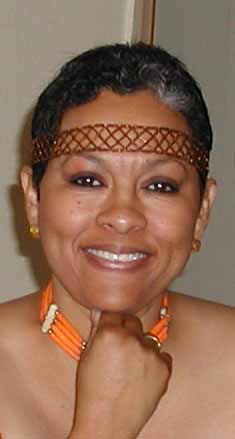 The Thin Line Between Strength and Weakness
The Thin Line Between Strength and Weakness
Joan Marques - MBA, Doctoral Student
It is a talent of the weak to persuade themselves that they suffer for something when they suffer from something that they are showing the way when they are running away that they see the light when they feel the heat that they are chosen when they are shunned. ? Eric Hoffer-.
It may not be particularly obvious in business settings, but in everyday life the thin line between strength and weakness lurks behind every action. And people use these two traits - strength and weakness - all the time to reach their goals. Interestingly, strength can sometimes be considered weakness, weakness can sometimes be considered strength strength can flip into weakness, and weakness can flip into strength.
Before attempting to evaluate these two phenomena, it might be a good idea to state that, in our seemingly progressing world, weakness is still hardly ever accepted within men, especially not in business. It is therefore predominantly the female guild that allows itself to use weakness as a goal oriented strategy.
Let's try to analyze how strength and weakness can be each other's competitors: The abovementioned demonstrates that, no matter what their driving motive is, most people will prefer to appoint weakness, for weakness does not represent a significant threat, while strength does.
Depending on the type of man these women are dealing with, strength or weakness will prevail: the sober, practical male with a clear focus on the future, will most likely choose for strength, since he prefers to calculate his options and makes sure he regularly does the math of his life.
The gentle knight in shining armor, though, will probably fall for weakness, because there is a need in him to feel indispensable a need that may not be fulfilled when choosing for strength, especially if he is not too young anymore. He may consider it easier to hurt the strong person and cherish the weak one, because, in his mind, the strong one will get over it, while the weak one won't...
Of course, both women can hold on as long as they wish, especially if they are both perseverant. Yet, ultimately, it will be the man's character that will determine who will stay around and who will have to move on.
It may all be rooted in our ? still reigning - convictions that women are (read: should be) weak and need to be helped. However, as Calvin Coolidge stated, "Don't expect to build up the weak by pulling down the strong." No matter how many hurdles they encounter, the strong will always bounce back, like a cork in a pool of water: you push it down here, it pops up somewhere else. But in any case, the aforementioned explains why those who try to break through the established perceptions and beliefs have such a hard time getting anywhere and are forced into entrepreneurship, when it comes to business settings, and to loneliness and/or second choices when it comes to private life.
Now, one could wonder if weakness, as used in the examples above, is not the real strength, and strength, as used here, is not the real weakness? And one could also easily conclude that, in the above-posted illustrations, weakness has actually flipped into strength, while strength has ultimately turned into weakness.
This whole analysis boils down to something Bette Davis stated so wonderfully, "The weak are the most treacherous of us all. They come to the strong and drain them. They are bottomless. They are insatiable. They are always parched and always bitter. They are everyone's concern and like vampires they suck our life's blood."
Burbank, California - June 2002
Imagine two women applying for the same job. They are both attractive and smart, but one radiates strength and the other fragility. Whether the recruiter is a man or a women, he or she will most likely, each for his or her own reasons, choose for the fragile type. The female recruiter may do so because she estimates her chances of influencing the applicants, and for all she knows the weak eyeing one may be an easier manipulatable target in the work setting than the one that radiates strength and determination. Besides, strong people can always overpower you, and who wants to be overpowered?
The male recruiter may either base his decisions on the same arguments as mentioned above, or just decide with his age-old, deeply rooted conviction that a woman should be weak and frail, and not as determined as the strong applicant seems. He starts seeing images of feminist-parades and remembers the Amazonian age, and consequently decides that it's always better to play it safe and prevent any possible menace.
Imagine two women desiring the same man. The one who uses strength as her tool toward accomplishments, will try to make productive use of her time while persevering and hanging in there endeavoring to convince the man that her strength will be an advantage for their life together.
The woman who uses weakness as her tool, on the other hand, will emphasize her lack of strength and abilities, because one way or another she anticipates that it will trigger a sensitive chord within the man.